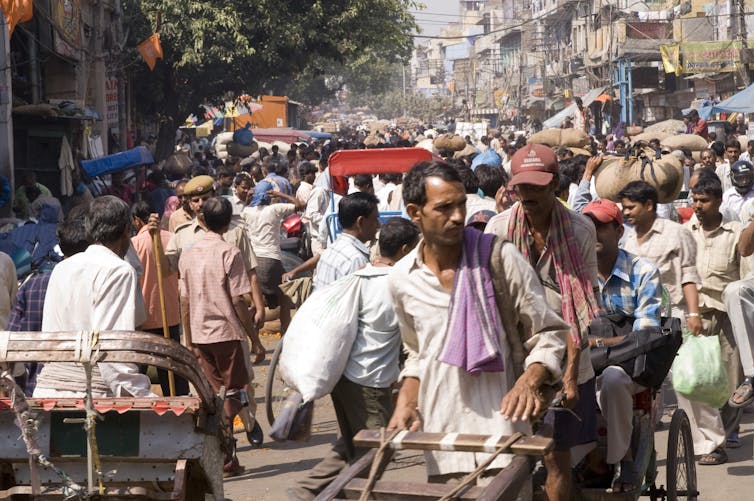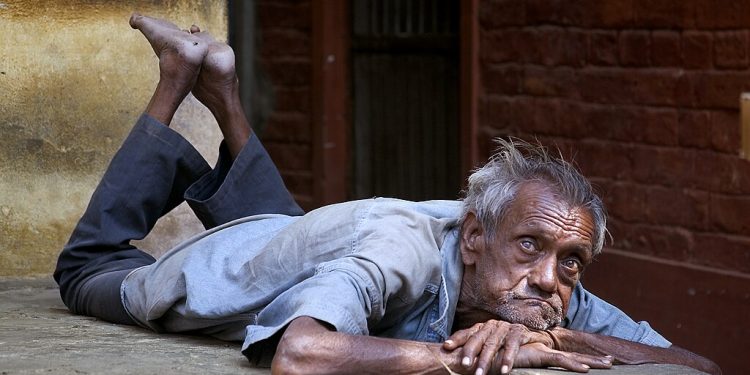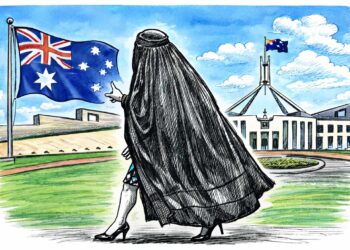Michael Hornberger, University of East Anglia
India is often perceived as a country with a young population, while European and North American populations are regarded as ageing. Although this is true, the country’s demographics are rapidly shifting, according to a UN study. And people aged 60 and over are expected to constitute 20% of the population by 2050.
Given this trend, there have been numerous attempts – using different methods – to determine the prevalence of dementia on the subcontinent. A new study, published in PLOS One, suggests that the prevalence of dementia in India is higher than previously thought.
The researchers investigated the number of people with dementia in India by establishing how many people aged 60 and over in the country have a neurocognitive disorder.
Neurocognitive disorders – changes to cognition (thinking) because of a potential underlying brain disorder – are commonly divided into minor and major disorders. Dementia is considered a major neurocognitive disorder, while mild cognitive impairment, a common early stage of dementia, a minor neurocognitive disorder.
The study results showed that nearly one-sixth (17.6%) of people over 59 in India have a mild neurocognitive disorder, while 7.2% have a major neurocognitive disorder.
Extrapolating these estimates to the Indian population over 59 years of age (104 million) suggests that 24 million of those people have potentially mild cognitive impairment, while 9.9 million potentially have dementia.
There are 14.5 million people over 60 in the UK, meaning the dementia rate is about 6.5%, whereas, according to this latest study, the dementia rate in India is about 9.5%. However, the sheer size of the estimates in the study explains why the UN is paying closer attention to the ageing and dementia population in India. But how were mild cognitive impairment or dementia established in the study?
Mild cognitive impairment and dementia are commonly based on performance on cognitive tests and whether cognitive changes affect everyday activities.
For mild cognitive impairment, people will have mild cognitive changes, but they do not affect their everyday activities. Whereas for dementia, people will have cognitive changes that will affect their everyday activities.
Within the study, participants were asked to perform cognitive tests and their family members were asked to report changes in their everyday activities. For example, if they had slight memory changes but they did not affect their everyday activity would mean they would be considered to have mild cognitive impairment.
But if they had more significant memory problems and their family reported noticeable changes to their everyday activities, they then would be considered to have dementia.

Shortcomings
Despite cognition and everyday activity being key to dementia diagnostics worldwide, they have significant shortcomings, in particular for assessments in developing countries, such as India.
The main reason for this is that most cognitive tests were developed for literate populations with higher levels of formal education, whereas low formal education and illiteracy remain very prevalent in older and rural populations of developing countries.
For the current study, nearly half of their participants had either no formal education or were illiterate. This, therefore, creates uncertainty if the cognitive changes are because of the lower education or literacy levels of the person being tested or the first signs of dementia.
But what else can we do to determine if someone is either at risk or has dementia?
Blood might be the answer. A simple blood test to determine someone’s risk for dementia has been the holy grail in dementia research for decades. Now such blood tests have become a reality, at least in research studies.
Dementia blood tests are still so new that they have not made it into the clinics, but it seems only a matter of time until these tests will be widely available across memory clinics and doctor’s surgeries.
Having a blood test result might remove the ambiguity of whether changes to cognition are the first signs of dementia or relate to other factors, such as level of formal education.
People in developing countries, such as India, will particularly benefit from such blood tests as the relevance of cognitive changes is then not as important anymore but can be used to support a diagnosis.
It will be interesting to see whether the estimates for mild cognitive impairment and dementia in the populations will change because of the new blood tests, as they might be more specific in determining who really has the disease or is at risk of it. A few drops of blood might change our perceptions of dementia in the future.
Michael Hornberger, Professor of Applied Dementia Research, University of East Anglia
This article is republished from The Conversation under a Creative Commons license. Read the original article.











